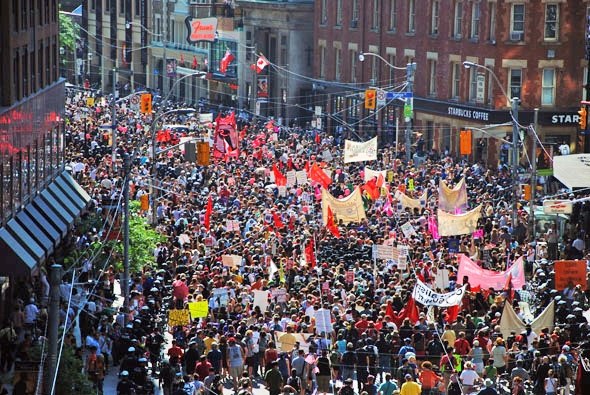anarchism
Paul Le Blanc: Why Occupy activists should read the greats of revolutionary socialism

[Read more from Links International Journal of Socialist Renewal on Lenin,
The collapse of 'communism' in the USSR: Its causes and significance
By Doug Lorimer
Doug Lorimer is a member of the National Executive of the DSP. This article is based on a report adopted by the 14th National Conference of the DSP, held in Sydney, January 2-6, 1992.
©Resistance Books 1997; first published 1992, second (revised) edition 1997
Contents
James P. Cannon (1955): The I.W.W.
Transcribed: by Andy Blunden. Text from the Marxist Internet Archive. For more on the IWW, click HERE.
CONTENTS
The Bold Design
An Organization of Revolutionists
The Duality of the IWW
Vincent St. John
The long Detour
The Wobblies As They Were
The Turning Point
The Heritage
Michael Lebowitz on John Holloway's 'Change the World without Taking Power'
Occupy and the tasks of socialists

"Out of clouds of pepper spray and phalanxes of riot cops a new generation of revolutionaries is being forged, and it would be a shame if the Peter Camejos, Max Elbaums, Angela Davises, Dave Clines and Huey Newtons of this generation end up in separate “competing” socialist groups ... Now is the time to begin seriously discussing the prospect of regroupment, of liquidating outdated boundaries we have inherited, of finding ways to work closely together for our common ends. "
For more on the #Occupy movement, click here.
By Pham Binh
Lucy Parsons: 'More dangerous than a thousand rioters'

Lucy Parsons, 1930: "I have seen many movements come and go. I belonged to all of those movements. I was a delegate that organized the Industrial Workers of the World. I carried a card in the old Socialist Party. And now I am today connected with the Communists."
By Keith Rosenthal
Debate on Bolivia: Government, social movements and revolution

[The following article is a reply to Jeffery Webber's article, “Bolivia’s reconstituted neolib
Mexico: Opportunism and sectarianism hamper left’s resistance to neoliberalism

"The Zapatistas’ anarchist strategic outlook, with their anti-theory 'no political

By Alistair Davidson
The state, social movements and revolution in Latin America

By Federico Fuentes
November 28, 2010 -- Green Left Weekly -- It should come as no surprise that Latin America, a region converted into a laboratory for ongoing experiments in social change, has increasingly become the topic of discussion and debate among the broader left.
Latin America has not only dealt blows to imperialism but also raised the banner of socialism on a global scale. It is of strategic importance for those fighting for a better world, especially at a time when capitalism is in systemic crisis.
Latin America’s landscape of powerful social movements, left governments of various shades, revolutionary insurrections, and growing expressions of indigenous resistance and worker control, provides a perfect scenario for leftists to learn about, and debate, revolutionary strategy and tactics.
This should not simply be an academic debate. It should look at how to best build solidarity with these movements for change and gain insight for struggles at home.
Of late, burning dispute has opened up, mostly among those writing from an anti-capitalist orientation: a debate over the complex relationship, or “dance” as Ben Dangl calls it, between social movements and states in Latin America.
Victor Serge: From the defeated past to the expectant future

By Suzi Weissman[1]
[This paper was presented at a conference in Nottingham, England, in 2009. It is posted at Links International Journal of Socialist Renewal with Suzi Weissman’s permission. See also "Victor Serge: `dishonest authoritarian', `anti-worker anarchist' or revolutionary Bolshevik?"]
Toronto G20 protests: What was gained and what was lost

By John Riddell and Art Young
September 2, 2010 -- Socialist Voice -- Two months after the protests against the G20 summit in Toronto and the accompanying police rampage, it is time for an initial balance sheet of what was gained and lost.
Some on the left view the experience as entirely positive. In particular, the Toronto Community Mobilization Network (TCMN) declares flatly that “the people won”, citing participation by “nearly 40,000 people”, the success of the June 24 march for Indigenous sovereignty, and the involvement of a wide spectrum of social movements and “over 100 grassroots organizations”. The July 26 TCMN statement also highlights protesters’ capacity to carry on in the face of arrests and intimidation, including deployment of almost 20,000 cops and a formidable array of weaponry, at a cost of more than C$1.2 billion.